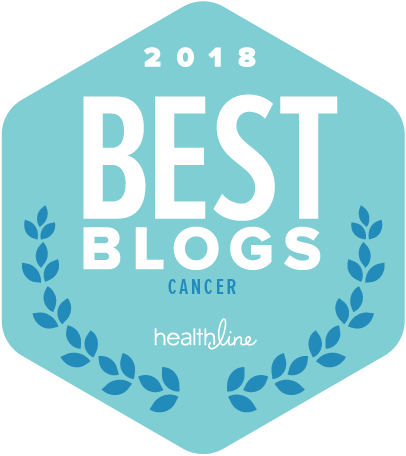Why did you decide to be a SHARE Breast Cancer Helpline volunteer?
I'd not heard of SHARE until Victoria Goldberg told me about it and asked if I'd consider volunteering. After hearing about all the wonderful services SHARE offers and then scoping out the website, it seemed like a nice way to reach back to others who need encouragement and a helping hand as they face the daunting challenges of MBC.
What do you like most about being a Helpline volunteer?
Knowledge is power, and understanding the science of cancer relieves the haunting burden of 'why me?' Most of the callers I've spoken with on the helpline are recently diagnosed and terrified. I'd like to hope that I help them divert from that proverbial rabbit hole of despair by explaining much of that cancer science, so that instead they look towards the challenges that lay ahead with renewed sense of perseverance and inner strength. I hope when they next meet with their oncologist and medical team, they feel emboldened to leave no questions unasked. I make sure to let them know that SHARE is always here for them when they simply need additional perspective on whatever is most on their minds when it comes to their diagnosis.
Co-facilitating the group metastatic calls on alternating Thursday evenings has been insightful. Most callers are regulars, rarely missing a week. They feel less alone in these calls, which is hugely comforting. We do our very best to offer encouragement, suggestions and ideas of how to mitigate side effects, and the overwhelming anxiety and fears many of us experience while navigating set-backs. Mostly, though, we just listen. It's an intimate sisterhood environment amongst women who've never met in person, yet have an undeniable kindred-spirit bond through these group calls.
When were you diagnosed and what was your diagnosis?
I was initially diagnosed very early stage 1 about a month after I'd had a clean mammogram. I always tell women “Get to know what normal feels like, so when the day comes for your monthly self exam, you will immediately be alert to any changes.” (I'd had a scare when I was just 21 years old that turned out to be a benign tumor which was surgically removed. And that's when I got educated about the importance of self-exams.) Mammography did NOT pick up my early stage 1 ER+ IDC in 2003 (the year I turned 50). Because my first lumpectomy had in-situ (stage 0) cells along the margins, I had a second lumpectomy. That too had stage 0 cells on the margins. So I had a bilateral mastectomy, to ensure I'd NEVER have to deal with this again. Was told odds of recurrence after all was said and done was between 2 and 3%.
Where are you now, as far as your breast cancer “journey?”
After eleven healthy and physically active years, in 2014 I again noticed something amiss, so immediately contacted my surgeon (who’d become a personal friend). This time it was MBC (HER2+, ER+) with mets to my mediastinum and my lungs. I felt completely blindsided...duped by those pink campaigns into thinking no one died anymore from breast cancer and certainly not after having had bilateral mastectomy for early stage 1!
I spent hours and hours researching my own diagnosis and was horrified to learn the inconvenient truth about MBC. About 13 months into treatment, I had progression of disease which prompted a change in my treatment plan. Then four months later I had more progression. My oncologist (Chief of Hematology and Oncology at a highly respected medical center) advised me to 'live in the moment' and get my affairs in order. That doom and gloom advice didn't sit well with me. I promptly sought out another oncologist at one of the nations top 10 cancer research hospitals, UCSF. Lucky for me my longtime internist was able to grease the wheels to get me seen there within days. And I've been there ever since. I just surpassed my 5 years of living with MBC...been stable for the past few years thanks to my research focused oncologist. Not without a host of side effects of course, but 'stable' is my favorite word!
In addition to volunteering for SHARE, what else do you do? What do you (or did you) do for work?
I have six longtime client offices where I do financial management and bookkeeping/audit oversight. Their businesses are all very diverse in nature. I work on average 4 days a week, sometimes from home, and wedge in all the hospital and doctor visits which of course take priority with never ending infusions and scans and all the rest of it. In addition, I volunteer several hours a week (evenings usually) as an Adoption Counselor for a German Shepherd Rescue organization, responding to applicants, and seeking out those who truly are savvy about the breed and have the skills to take on the challenges of a German Shepherd rescue, which can be vast. My own German Shepherd rescue came with tremendous behavioral challenges but in the 2 years she's been a part of our family, she's morphed into the best and most loyal comfort dog I've ever had...and I've had dogs most of my life. I think she knew I needed her as much as she needed me. It’s been a win/win...but not without hours of bonding through re-directive training accomplished by a whole lot of patience, praise and trust building.
What do you do for fun?
I really enjoy the solitude of painting..watercolor and acrylics. I'm also in a longstanding book club that meets monthly. So many books... so little time! Until last year, I was playing golf a few times a month with girlfriends...but peripheral neuropathy in my hands and feet, along with increasing hip pain due to osteoarthritis, put golf on the back burner (along with all things 'active'). I'm currently pursuing (read: begging for) a hip replacement in hopes I can resume a level of physical activity that keeps me motoring without pain. I'm a wife, and a mom to three grown kids, and a Grammy to 3 little grand kids. We enjoy our family gatherings and are pretty close knit.
What did you learn about yourself while going through your breast cancer experience?
Keep eyes forward, don't look back and for God's sake, don't look down. It's a tightrope for sure...stay focused on the horizon. The only timeline I'm on is the one I choose to endure.
Humor is crucial. I always look for the humor, even if the humor scope is ridiculously narrow.
What priorities did you have before and after?
Three years prior to my MBC diagnosis, I began writing a memoir, covering unusual challenges that occurred during my childhood. I wanted to write the book so my children could gain insight into how those events impacted me and shaped the woman and mom I grew up to be. There's much they don't know about my youth, and that's been intentional. When MBC took over so much of my life, I simply stopped writing. It became crystal clear that the only path for me to take is the one that leads forward, not back.
Any other insights that you want to share?
The pursuit of happiness applies to all circumstances, and it’s up to us alone to be involved in the critical choices we make with regards to our health and well-being. Physical and mental well-being are so closely intertwined that finding a sense of inner balance is incredibly important.
Bucket lists are overrated... chasing after the BIG adventure while missing the little daily nuances of life and love. When we die, will our last thoughts be of the places we've seen and the things we've done? Unlikely. If we're lucky, our last thoughts will be of those we've loved and who've loved us unequivocally in return.





You must be logged in to post a comment.